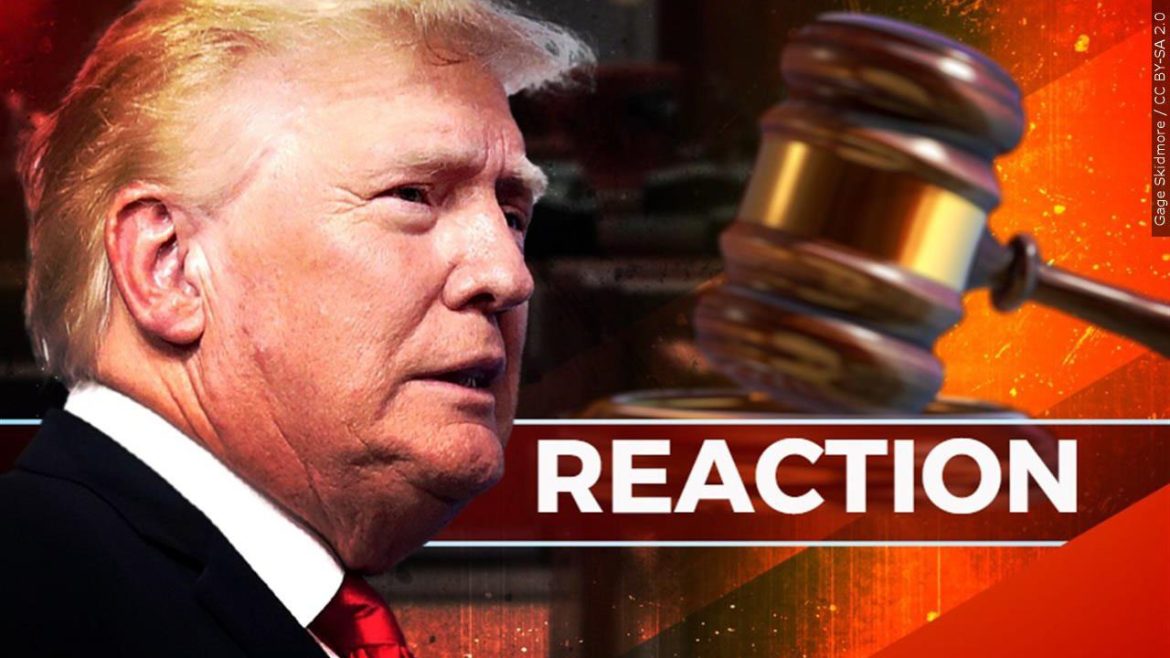As the dust settles on the recent Trump verdict, a wave of jubilation has swept through certain quarters of American society. But for those quick to celebrate, it might be wise to pause and contemplate the grave implications of this moment. This isn’t just a courtroom drama; it’s a scenario that could very well be out of a dystopian playbook, one that suggests the U.S. is veering into dangerously uncharted territory.
A Stark Parallel: When Justice Mirrors Oppression
The narrative is unsettlingly clear: a former President, Donald Trump, has been incarcerated—a maneuver seemingly orchestrated by political adversaries using the judicial system as their chessboard. This strategy, where legal mechanisms are employed to neutralize political threats, is reminiscent of tactics used by authoritarian regimes throughout history. The notion that this could happen in the United States is alarming and raises questions about the sanctity of American democracy and the impartiality of its institutions.
The Theatrics of Trial: A Dubious Spectacle
The entire trial process has been criticized for its lack of solemnity and seriousness. Described by some as resembling a ‘clown show,’ the proceedings seemed to devolve into a spectacle rather than a stringent pursuit of justice. This approach undermines the gravitas expected in judicial processes, especially those involving figures of such significant public interest. When a trial turns into theater, it casts long shadows over the credibility of the verdicts rendered.
Echoes of Orwell: A Forewarning of Democratic Decline
With stark reminders of George Orwell’s “1984,” the circumstances surrounding Trump’s incarceration serve as a cautionary tale of how political power can be wielded to stifle dissent and manipulate truth. The fear that someone could be imprisoned for their political stance or past leadership is a chilling thought for any society that prides itself on democratic values and civil liberties.
The Specter of Epstein: Foreboding Predictions
Compounding the unease is the circulating speculation that Trump might meet a fate similar to Jeffrey Epstein, whose death in custody sparked controversy and conspiracy theories about the integrity of the U.S. penal system. While these comments are made partly in jest, they underscore a serious and widespread mistrust in the system’s ability to safeguard the well-being and rights of high-profile inmates.
Democrats and the Irony of Democratic Erosion
Ironically, while some Democrats warn that re-electing Trump could spell the end of American democracy, others argue that it is the actions of his political adversaries that are currently eroding democratic norms. This paradox highlights a polarized political landscape where each side perceives the other as a threat to the nation’s foundational principles.
A Call for Reflection and Vigilance
As the United States stands at this crossroads, it is imperative for citizens to reflect on the long-term implications of using judicial mechanisms as tools for political advantage. The Trump verdict should not merely be a cause for partisan celebration or condemnation but a moment for deep reflection on the health and future of American democracy.
In navigating this complex and contentious era, one must ask: are we witnessing the dismantling of democratic integrity from within? If so, the path ahead is indeed as dark as some fear, and vigilance becomes not just a duty but a necessity for all who value the principles upon which the United States was founded.

